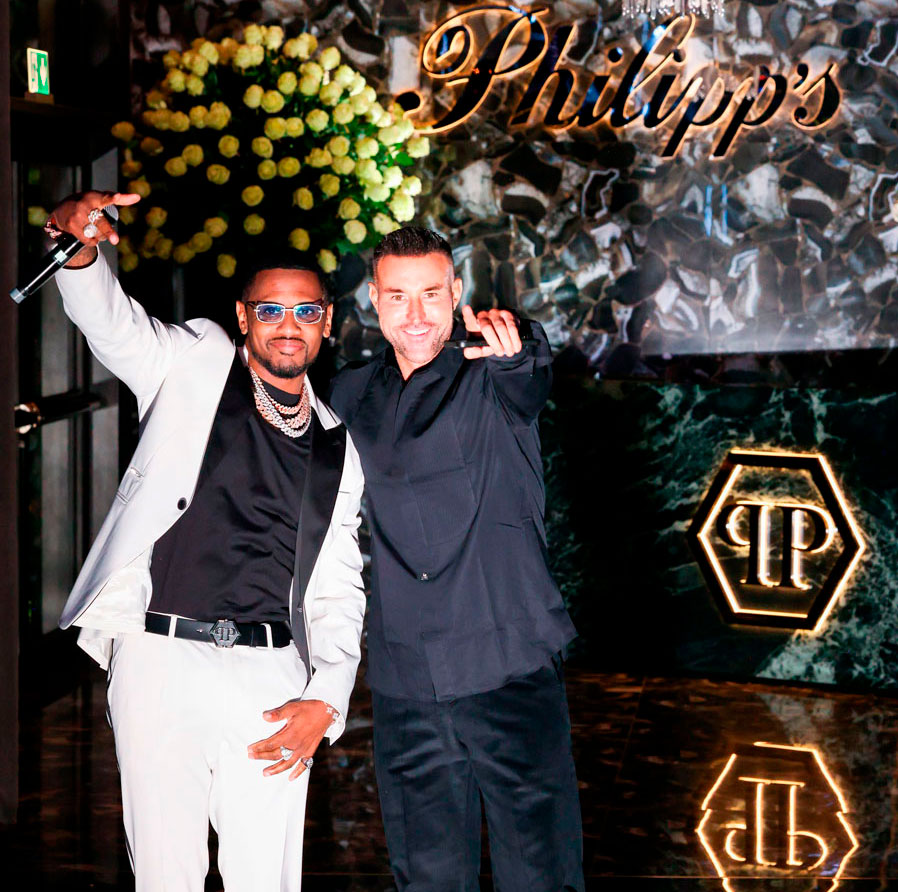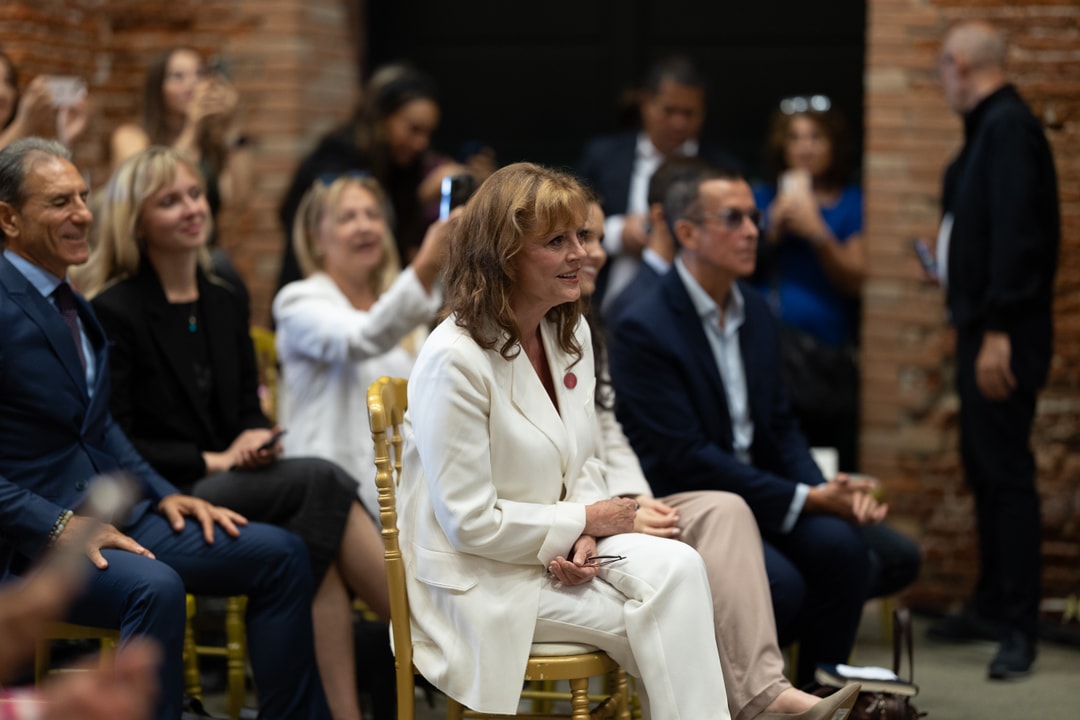Cannes Film Festival 2023

Written by: Ekaterina Shevliakova
The main award Palme d’Or was given for the film “Anatomie d’une chute” (“Anatomy of the Fall”) (directed by French director Justine Trier who previously took part in the Cannes Film Festival. In 2019 her “Temptation” entered the main competition, but that time she left Cannes empty-handed.
This year Justine Trier became the third woman to receive the main award of the Cannes Film Festival in the entire 76-year history of the event. She joined her colleagues who were previously honored in the same way: Jane Campion (“The Piano” in 1993) and Julia Ducornough ( “Titan” in 2021).
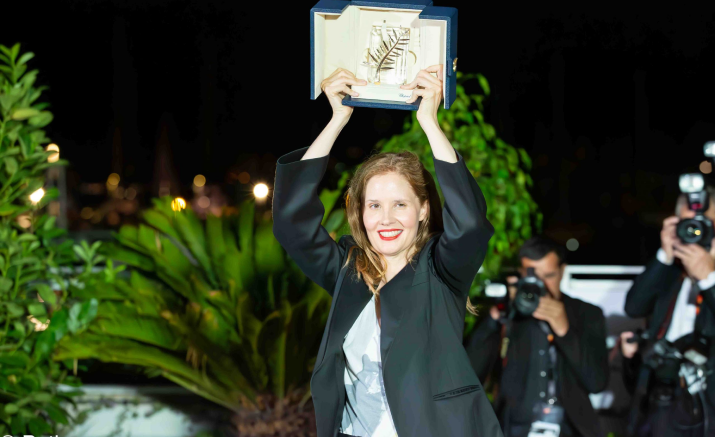
Justine received the Award from the hands of special guest of the ceremony, Jane Fonda who said the following on the occasion:
“Last time when I visited this Festival it was in 1963. Many of you weren’t even born yet… At that time, there was not a single female director in the competition, and it never occurred to us that there was anything wrong about it. We made progress, but we have a long way to go. We have to celebrate change when it happens. This year, for the first time, seven women directors are taking part in the competition.”
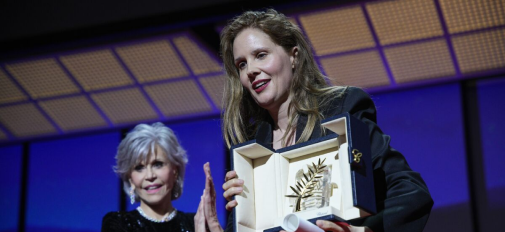
Anatomy of the Fall tells the story of Sandra a German writer (played by Sandra Huller), her French husband Samuel and their eleven-year-old son Daniel. The family lives in a high-altitude chalet near Grenoble. Samuel died after falling from the attic. There are no witnesses to the incident, and the circumstances of the death and the conclusion of the pathologist make the police suspect that Samuel was killed. Sandra fell under suspicion and goes through all the circles of judicial bureaucratic hell.
Trier resorts to a proven dramatic technique: the investigation of the incident turns into a study of the personality of the heroine, relationships within the family, as well as the nature of the woman as such. Ultimately, the viewer will have to find out not only and not so much the cause of Samuel’s death, but also the deep tectonic causes that provoke a crack in the relationship. Sandra, unfortunately, turned out to be a more talented novelist than her husband, and the tragedy, because of which her son became visually impaired, launched a time bomb.
This is a film about family relationships and responsibility. Justine Trier asks very difficult questions, there is no direct answer to them and there cannot be. Do we owe each other something in marriage? What do we give to our loved ones? Where is the balance between yin and yang? Is Sandra a successful woman who, with her success, creates an imbalance in relationships, or is Samuel a whiner and a loser, always offended by everyone? Is equality in relationships a fantastic ideal, or is it possible to achieve it?
The film is multifaceted – Trier also touches on the eternal art criticism question of the connection between the author and his literary alter ego. The prosecutor, trying to accuse Sandra, reads excerpts from her own books at the trial, and the court examines the materials of Samuel’s unfinished work – audio recordings, notes and letters that relate not so much to the future book as to the personality of the writer himself.
The director blurs the line between real and fictional, truth and falsehood – and invites the viewer to understand what happened. The court’s decision is announced at the very end of the picture, but there is an understatement that makes you mentally return to the content of the film and analyze the words and deeds of the characters.
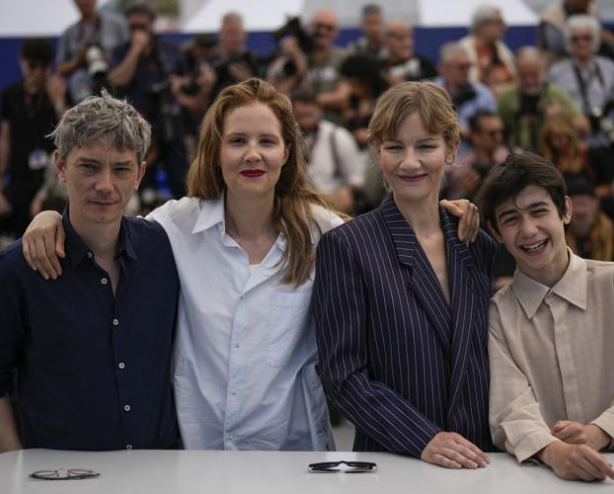
Most of the screen time in the frame is the main character. Sandra Hüller manages to convey the writer’s deep feelings very restrainedly, with small changes in intonation or facial expressions – the whole bunch of human emotions from the joy of communicating with her son to the despair of losing a loved one.
Once after the screening of the film, film critics noted that “Anatomy of the Fall” echoes the work of Ruben Östlund “Force Majeure“, and predicted the main prize for it.
Another film, starring Sandra Hüller, Jonathan Glazer’s “The Zone of Interest”, won a prize at Cannes as well. The film about the family of the German commandant Rudolf Hess, responsible for the execution of countless Jews in Auschwitz, received the Grand Prix from the jury headed by the Swedish director Ruben Östlund. Earlier, the ProfiCinema portal wrote about this work. The British director in his speech paid tribute to the memory of the late Martin Amis, whose book was made into a film and who died last week, on the day of the premiere of “Zone of Interests” at the film festival (May 19).

The Grand Prix of the Festival was awarded by two legendary directors at once – Roger Corman and Quentin Tarantino.
“I’ve never understood the concept of guilty pleasure. Here in Cannes there is only pleasure in its purest form! And the real cinematic pleasure for my eyes, heart and mind is the work of my hero, Mr. Roger Corman”.
In this way Tarantino introduced the master. He, in turn, was brief:
“Cannes is the most interesting and significant film festival in the world. We are very lucky to be a part of it.”
The film “Fallen Leaves” by Finnish director Aki Kaurismäki, which became the absolute leader in the rating of film critics of Screen magazine (3.2 points), received the Jury Prize. The director did not appear at the ceremony, so the award from the hands of actor Orlando Bloom was received by the performers of the main roles in the film – Alma Pövsti and Jussi Vatanen.
Almost every laureate in his speech gave a special place of gratitude to the program director Thierry Frémaux.
Perhaps the only one who dared to joke at the ceremony was actor John C. Reilly, who this year was the Chairman of the Jury. Coming on the stage for the Best Screenplay award, he stood silently and only occasionally sighing for a few minutes to awkward whispers and chuckles from the audience. “This is what the film looks like if there is no good script,” he finally said, breaking the silence. The prize for the Best Screenplay was awarded to Yuji Sakamoto for the film “Monster” (directed by Hirokazu Kore-eda) – this film Thierry Frémaux compared with the works of Kurosawa.
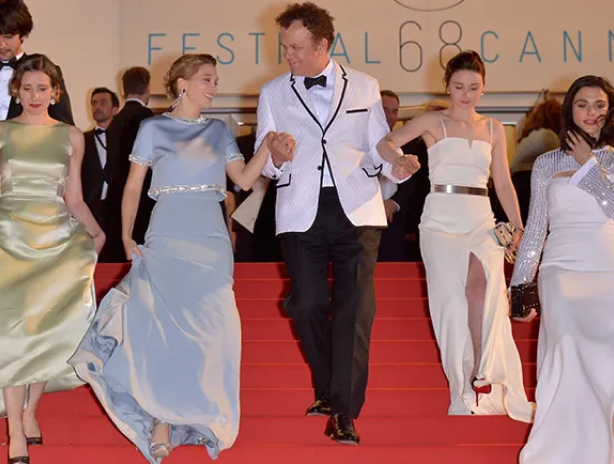
The awards for the best acting work were presented by the winners of last year – actor Song Kang-ho (the film “The Middleman“) and actress Zara Amir Ebrahimi (“Killer Sacred Spider “). The prize for Best Actor went to the legend of Japanese cinema Koji Yakusho, who played a Tokyo cleaner of public toilets in Wim Wenders’ film “Perfect Days”. The prize for Best Actress was awarded to Turkish actress Marve Dizdar for her role as a rural school teacher in Nuri Bilge Ceylan’s film On Dry Herbs.
The film festival closed with Peter Sohn’s animated film “Elements” from Pixar Animation Studios.

Best Short Film
“27”, director Anna Flora Buda
On the eve of the closing of the 76th Cannes International Film Festival, the organizers of the show held a creative meeting with actress, producer, writer and activist Jane Fonda. The sex symbol of the 60s – the performer of the role of Baraberlla in the 1968 film of the same name, the winner of the actor’s Oscar for the film “Klute” by Alan Pakula in 1971, an irreconcilable opponent of the Vietnam War, a defender of women’s rights and the environment, shared her life and professional experience.
Recalling her work on the role in the film “Klute”, Fonda told how she spent some time with prostitutes who were abused in her youth. She also visited the crematorium, where she saw photographs of women beaten to death. In some scenes on the set, the actress really cried, thinking about their fate. As Fonda admitted, it was this experience that prompted her to join the feminist movement.
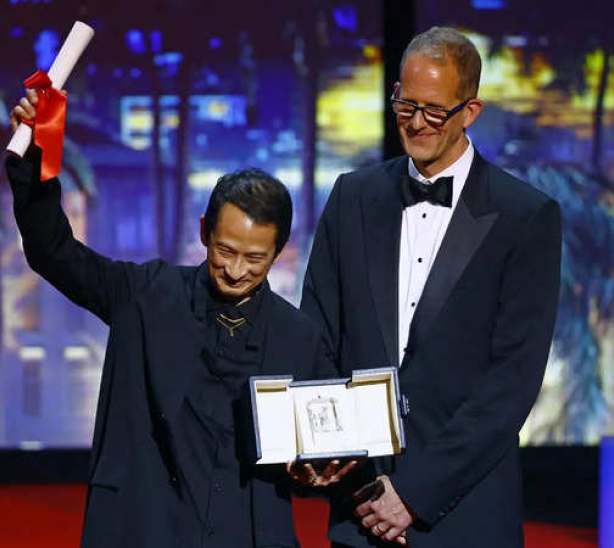
Another area of public activity of the actress is anti-war. In the early 70s, she met American deserters from Vietnam in Paris. They told her what was really going on there. Fonda returned to the U.S. and contacted the unions. Initially, she even wanted to leave the profession so as not to propagate the war from the screens. However, an activist from the communist movement persuaded Fonda not to leave the cinema.
She said: “There are many participants in our peace movement, but there is no actress like you – keep acting, but choose films based on your beliefs.”
Fonda also recalled how the only time she starred with her father. Henry Fonda, the star of American cinema, was seriously ill by the early 80s. The actress did not want him to leave without playing with her in the same film. Then she bought the rights to the film adaptation of the play “On the Golden Pond” – the film of the same name was directed by Mark Rydell. Together with Henry and Jane Fonda, it starred Katharine Hepburn.
Cannes 2023: The Un Certain Regard jury has announced the winners
On May 26, the winners of the Un Certain Regard section at the 76th Cannes International Film Festival were announced. A total of 20 films were selected for it, 8 of which were debuts. The main prize for Best Film was awarded to the film “How to Have Sex” – the first full-length work directed by Molly Manning Volcker about three British girls who went on vacation after passing exams.
The jury prize went to another full-length debut – the film “Hounds” / “Les meutes” by Kamal Lazrak.
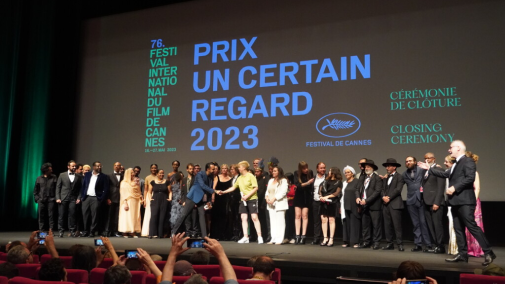
The jury of this year’s Un Certain Regard section was headed by American actor John C. Reilly. He was accompanied by French director and screenwriter Alice Vinokur, German actress Paula Behr, French-Cambodian producer and director Davey Chow, and Belgian actress Emily Decenne.
Winners of the Special Look program of the 76th Festival de Cannes
“How to Have Sex” (UK), directed by Molly Manning Volcker;
“How to Have Sex” (UK), directed by Molly Manning Volcker;
“How to Have Sex” (UK), directed by Molly Manning Volcker;
“How to Have Sex” (UK), directed by Molly Manning Volcker;
“How to Have Sex” (UK), directed by Molly Manning Volcker;
“How to Have Sex” (UK), directed by Molly Manning Volcker;





